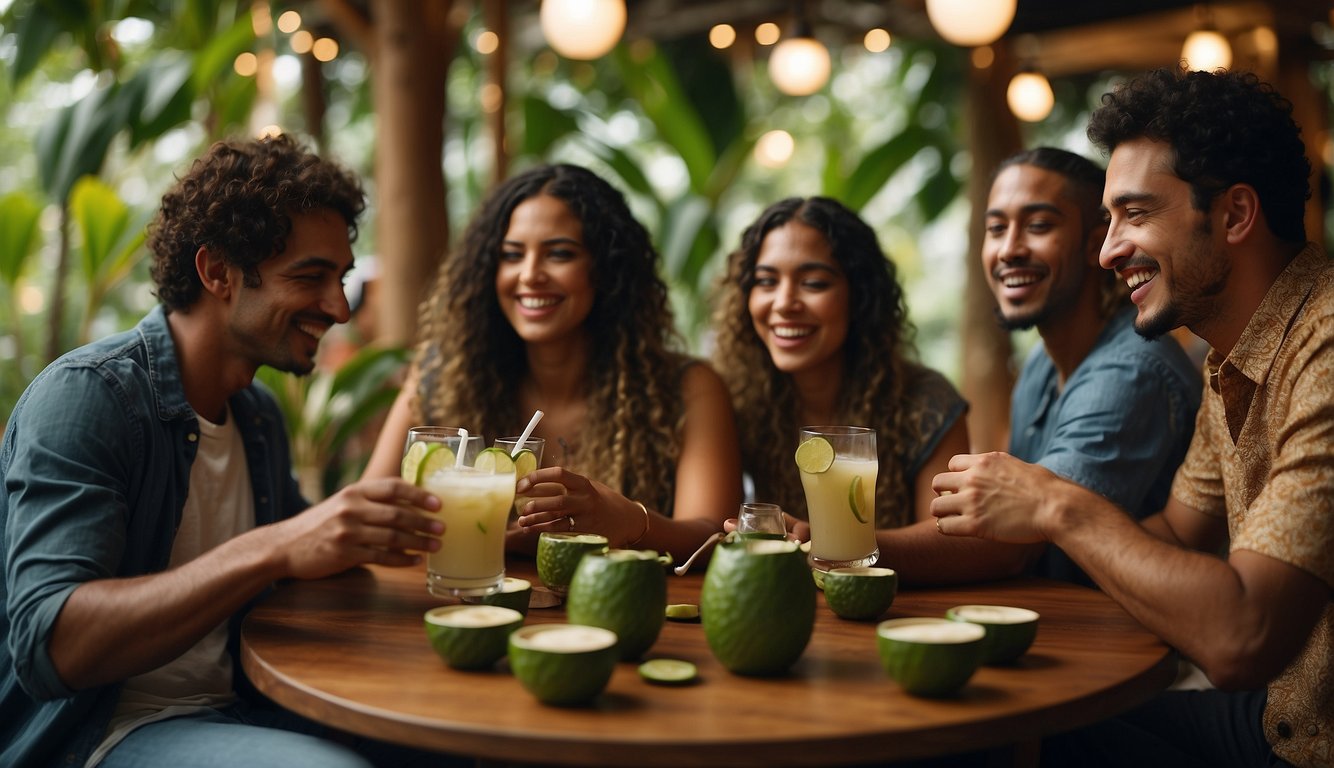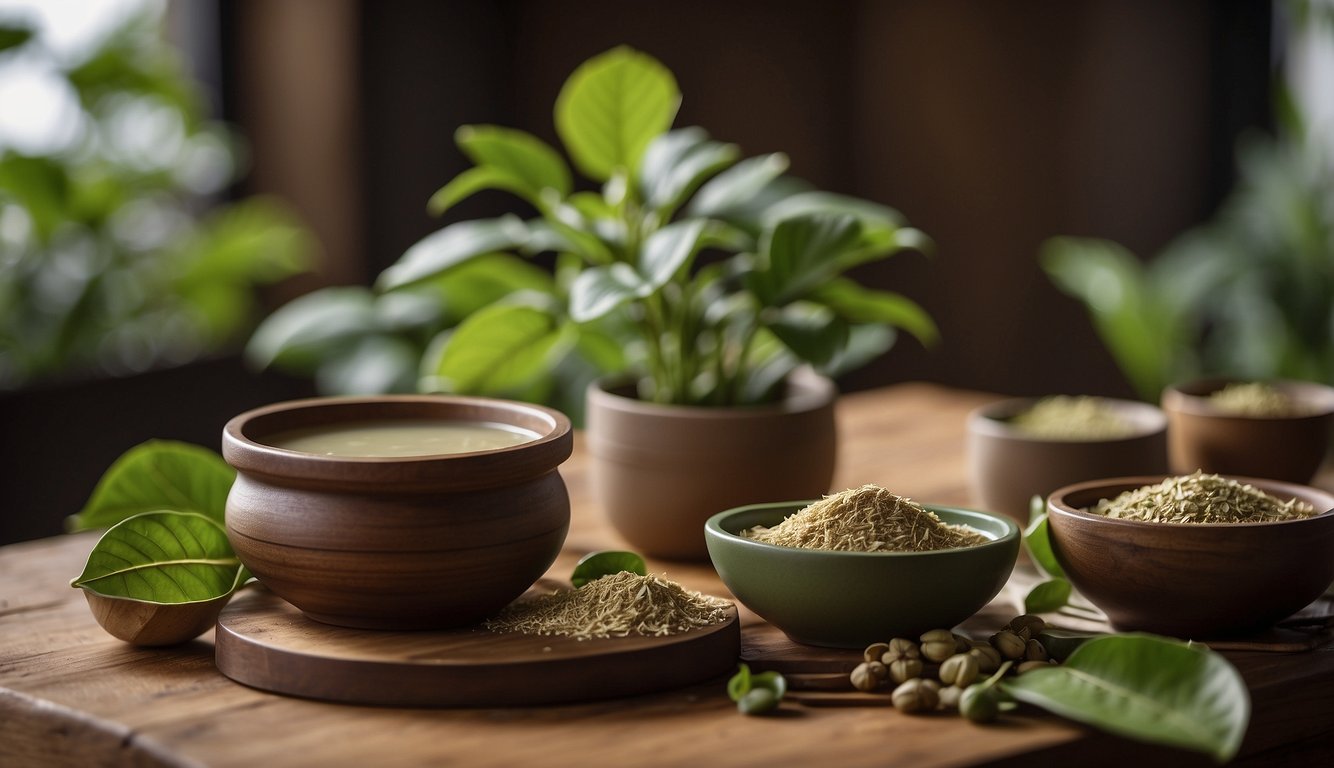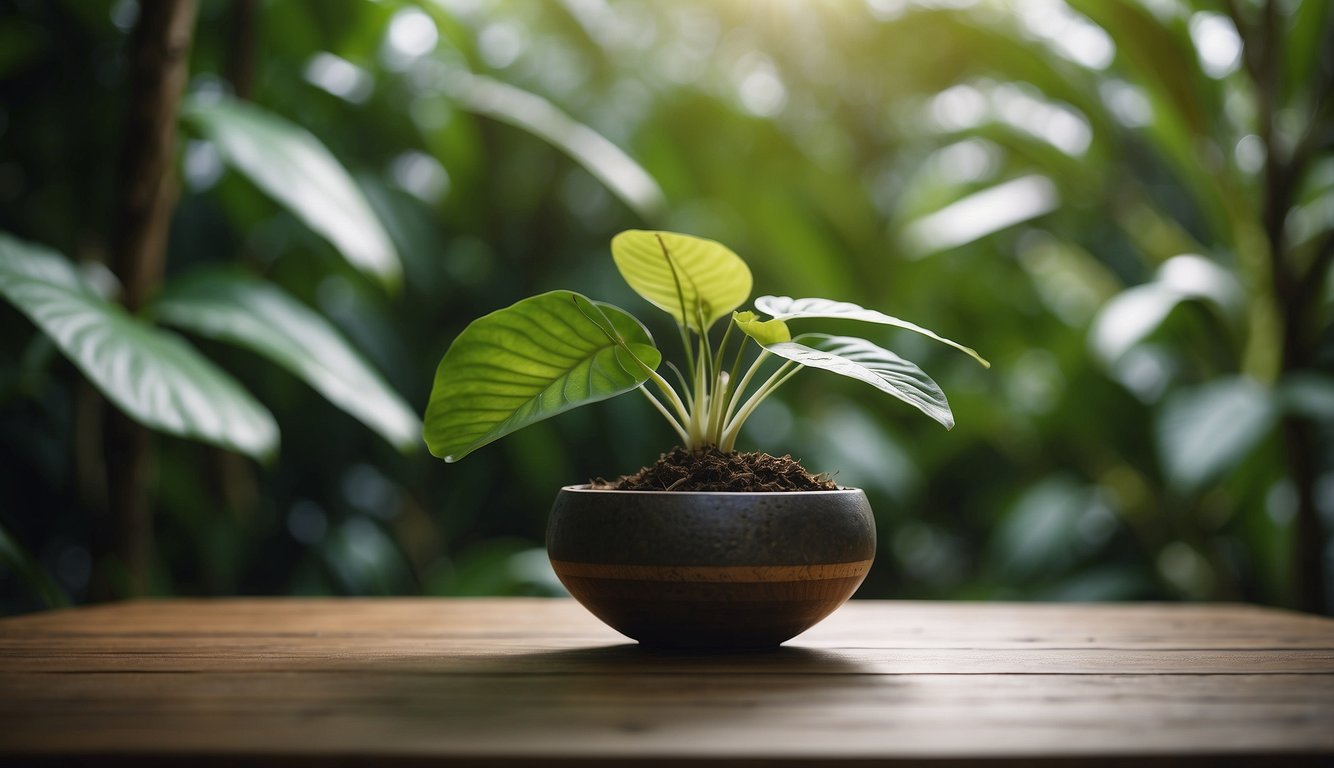TheHerbProf.com is a treasure trove of knowledge for those interested in natural healing and herbal remedies. The website is run by Paul Johnston MD. A naturopathic who has not only received extensive education in the field but also has personal experience in self-healing.
Kava kava is a plant extract that has been used for centuries in the South Pacific for its medicinal properties. It is known for its calming and relaxing effects, making it a popular natural remedy for anxiety and stress. Kava kava is also believed to have other benefits that make it a promising supplement for overall health and wellness.
One of the most significant benefits of kava kava is its ability to reduce anxiety and promote relaxation. This is due to its active compounds called kavalactones, which interact with the brain’s receptors to produce a calming effect. In fact, studies have shown that kava kava can be just as effective as prescription anti-anxiety medications, without the negative side effects.
Aside from its anxiety-reducing effects, kava kava is also believed to have other potential benefits. It is thought to have anti-inflammatory properties, which may help alleviate pain and swelling. Additionally, some studies suggest that kava kava may have neuroprotective effects, which could help prevent or slow down the progression of certain neurological disorders. Overall, kava kava is a promising natural remedy that may offer a range of health benefits.
Understanding Kava Kava
As someone who has studied the botanical profile of Piper Methysticum, commonly known as Kava, I can confidently say that it is a plant with a rich history and cultural significance in the Pacific Islands. In this section, I will provide an overview of Kava’s historical significance and origin, as well as its botanical profile.
Historical Significance and Origin
Kava is a plant that has been used for centuries by Pacific Islanders for medicinal, cultural, and social purposes. It is believed to have originated in Vanuatu, a small island nation in the South Pacific Ocean. From there, it spread to other parts of the Pacific, including Hawaii.
Pacific Islanders have used Kava in traditional ceremonies, such as weddings and funerals, to promote relaxation and social bonding. It is also used to treat a variety of ailments, including anxiety, insomnia, and pain.
Botanical Profile of Piper Methysticum
Kava is a member of the pepper family and is also known as Awa. It is a tropical evergreen shrub that grows up to 3 meters tall. The plant has heart-shaped leaves and woody stems. The part of the plant that is used for medicinal and social purposes is the root.
The active ingredients in Kava are called kavalactones, which are concentrated in the root. Kavalactones are responsible for the plant’s sedative and anxiolytic effects. They work by increasing the production of gamma-aminobutyric acid (GABA) in the brain, which helps to calm the nervous system.
Kava is a plant with a rich history and cultural significance in the Pacific Islands. Its active ingredients, kavalactones, have been shown to have sedative and anxiolytic effects. As with any medicinal plant, it is important to use Kava responsibly and under the guidance of a healthcare professional.
Health Benefits of Kava Kava

Kava Kava, also known as Piper methysticum, is a traditional herbal remedy that has been used for centuries in the South Pacific Islands. It is known for its calming and relaxing properties, making it a popular alternative medicine for those suffering from anxiety, stress, and sleep-related problems. In this section, I will discuss some of the potential health benefits of Kava Kava.
Anxiety and Stress Relief
Kava Kava has been shown to be effective in reducing symptoms of anxiety and stress. According to a randomized controlled trial, Kava Kava was found to be more effective than a placebo in reducing symptoms of generalized anxiety disorder. It is believed that Kava Kava’s anxiolytic effects may be due to its ability to increase gamma-aminobutyric acid (GABA) in the brain, which has a calming effect on the nervous system.
Sleep Improvement and Insomnia Management
Kava Kava has been used as a natural remedy for insomnia for centuries. Its sedative effects and relaxation properties make it an effective alternative to prescription sleep aids. According to a study, Kava Kava was found to improve sleep quality and reduce stress-induced insomnia. However, it is important to note that the effectiveness of Kava Kava as a sleep aid may vary depending on the dosage and individual response.
Potential Neuroprotective Effects
Kava Kava has been found to have potential neuroprotective effects, which may help to prevent or slow down the progression of neurodegenerative diseases such as Parkinson’s and Alzheimer’s. According to a study, Kava Kava’s neuroprotective effects may be due to its ability to increase dopamine levels in the brain and reduce inflammation.
Sedative Effects and Relaxation
Kava Kava’s sedative effects and relaxation properties make it an effective natural remedy for those suffering from restlessness, headaches, and other symptoms of stress. Also Kava Kava contains kavalactones, which are believed to be responsible for its sedative effects. Kava Kava is available in various forms such as tea, capsule, powder, tincture, paste, and tablets.
Kava Kava has been used as a herbal remedy for centuries due to its potential health benefits. However, it is important to note that Kava Kava may not be suitable for everyone, and it is important to consult with a healthcare professional before using Kava Kava as an alternative medicine.
Kava Kava in Social and Recreational Use

Asides from its medicinal benefits, Kava Kava has a rich history of social and recreational use in Pacific societies. In this section, I will explore the cultural practices surrounding Kava Kava in Pacific societies and its modern recreational use.
Cultural Practices in Pacific Societies
Kava Kava, also known as ‘awa, has been an integral part of Pacific Islander culture for centuries. The drink is made from the roots of the Kava plant, which is native to Micronesia, Vanuatu, and Fiji. In these societies, Kava is consumed during social gatherings, ceremonies, and as a sign of respect to high-ranking individuals.
The preparation of Kava is a sacred ritual, and the drink is usually served in a communal bowl. The person preparing the drink, known as the ‘tanoa,’ is highly respected and holds a significant role in the community. The drink is usually consumed in rounds, with each participant taking a turn to drink from the communal bowl.
Modern Recreational Use
In recent times, Kava Kava has gained popularity as a recreational drink in Western societies. The drink is known for its calming and relaxing effects, making it a popular alternative to alcohol. Unlike alcohol, Kava does not impair cognitive function or cause a hangover.
Kava bars have emerged in Hawaii and other parts of the United States, offering Kava-based drinks to patrons. These bars have become popular social hubs, attracting people who want to relax and socialize without the negative effects of alcohol.
Kava Kava has a rich history of social and recreational use in Pacific societies. While the drink is primarily used for medicinal purposes, its calming effects have made it a popular alternative to alcohol in Western societies. Kava bars have emerged as popular social hubs, attracting people who want to relax and socialize without the negative effects of alcohol.
Safety and Regulatory Status

As with any supplement or medication, it is important to understand the safety and regulatory status of kava kava before consuming it. In this section, I will discuss potential liver toxicity and damage, regulations and bans worldwide, and recommended dosage and precautions.
Potential Liver Toxicity and Damage
There have been reports of liver toxicity and damage associated with the use of kava kava. In fact, the U.S. Food and Drug Administration (FDA) issued a warning in 2002 about the potential for liver damage from kava kava consumption. While the exact mechanism of how kava kava can cause liver damage is not fully understood, it is believed to be related to the kavalactones in the plant.
It is important to note that not everyone who consumes kava kava will experience liver damage. However, those with pre-existing liver disease or who are taking medications that can affect the liver should avoid consuming kava kava. Symptoms of liver damage may include loss of appetite, nausea, vomiting, fatigue, dark urine, and yellowing of the skin or eyes.
Regulations and Bans Worldwide
Kava kava has been banned or restricted in some countries, including Canada, France, Switzerland, and Germany, due to concerns about its potential for liver toxicity. In the United States, kava kava is legal but the FDA recommends that people do not consume it due to the potential for liver damage.
Recommended Dosage and Precautions
If you do choose to consume kava kava, it is important to follow recommended dosage guidelines and take precautions to minimize the risk of liver damage. The FDA recommends that people do not consume more than 290 milligrams of kavalactones per day, and that they do not consume kava kava if they have a history of liver disease or are taking medications that can affect the liver.
It is also important to note that kava kava can interact with other medications, particularly those that affect the liver. If you are pregnant or breastfeeding, it is best to avoid consuming kava kava due to the lack of safety data in these populations.
While kava kava may have potential benefits, it is important to understand the potential for liver toxicity and damage, as well as regulations and recommended dosage guidelines. As with any supplement or medication, it is best to consult with a healthcare provider before consuming kava kava.
Comparative Analysis with Other Remedies

When it comes to managing anxiety and stress, Kava has been compared to several other remedies. Here, I will briefly discuss the comparative analysis of Kava with Benzodiazepines, Valerian Root, and Alcohol.
Kava vs. Benzodiazepines
Benzodiazepines are a class of medications that are commonly prescribed for anxiety and sleep disorders in the United States. While they are effective in managing anxiety, they are associated with several side effects such as drowsiness, dizziness, and addiction. Kava, on the other hand, has been found to be as effective as Benzodiazepines in managing anxiety, but with fewer side effects. A study published in the Journal of Clinical Psychopharmacology found that Kava was just as effective as Benzodiazepines in reducing anxiety symptoms, but with fewer side effects.
Kava and Valerian Root Comparison
Valerian Root is another herbal remedy that is commonly used for anxiety and sleep disorders. While both Kava and Valerian Root have been found to be effective in managing anxiety, they work differently. Kava works by promoting relaxation and calmness, while Valerian Root works by increasing GABA levels in the brain, which helps to reduce anxiety. A comparative study published in the Journal of Ethnopharmacology found that Kava was more effective than Valerian Root in reducing anxiety symptoms.
Kava as an Alternative to Alcohol
Alcohol is often used as a way to manage anxiety and stress, but it can have negative side effects such as addiction, liver damage, and impaired judgment. Kava has been found to be an effective alternative to alcohol in managing anxiety and stress. A study published in the Journal of Clinical Psychopharmacology found that Kava was just as effective as alcohol in reducing anxiety symptoms, but without the negative side effects.
Kava has been found to be an effective alternative to several other remedies for managing anxiety and stress. While it is important to speak with a healthcare provider before using Kava or any other remedy, the comparative analysis suggests that Kava may be a safe and effective option for those looking to manage anxiety and stress.
See the article below for what can happen when companies try to increase profits without following the traditional use of Kava.
At the start of 2002, prospects were bright for Hawaii’s Kava producers. During the previous decade, the consumer base for Kava had expanded beyond drinkers of the traditional water-based Kava beverage to include the much larger nutritional supplement market. Kava capsules were prescribed in Europe to treat anxiety and insomnia. Statewide farm revenues for Kava had more than quadrupled in one year, from $120,000 to $585,000.
By year’s end, the Kava industry had collapsed. At least 68 suspected cases of Kava-linked liver toxicity had been reported, including nine liver failures that resulted in six liver transplants and three deaths. Countries in Europe, Asia, and North America had banned the sale of all Kava products. In the U.S., where the Federal Drug Administration issued warnings but did not institute a ban, supplement sales plummeted.
In an article soon to be published in the journal Phytochemistry, Prof. C.S. Tang (MBBE), his doctoral student Klaus Dragull, and Mr. Wesley Yoshida (Dept. of Chemistry) characterize several chemical compounds present in above-ground portions of the Kava plant but absent from the underground tissues used by Kava drinkers. The UH scientists hypothesize that these compounds, called alkaloids in the bark and leaf, may be responsible for the liver toxicity observed in some users of Kava supplements.
Kava Kava Benefits and TheHerbProf.com: A Match Made in Herbal Heaven!
Kava Kava Knowledge: At TheHerbProf.com, we’re all about kava kava! We delve into its calming properties and its place in herbal medicine.
Herbal Highlights: Learn how kava kava can transform your herbal routine. It’s not just a plant; it’s a ticket to tranquility!
Culinary Creations: Kava kava in the kitchen? You bet! We whip up tasty recipes that bring out the best in kava kava.
Health and Wellness: We’re all about health and wellness, and kava kava fits right in. It’s brimming with compounds that promote relaxation and well-being.
Community Connection: Join our tribe of kava kava enthusiasts! Share your journey, learn from others, and make some new friends.
So, whether you’re a kava kava veteran or just beginning your herbal odyssey, TheHerbProf.com is your trusty companion. Dive in, explore, and stay healthy!
References:
Little Herb Encyclopedia, by Jack Ritchason; N.D., Woodland Publishing Incorporated, 1995
The Ultimate Healing System, Course Manual, Copyright 1985, Don Lepore
Planetary Herbology, Michael Tierra, C.A., N.D., Lotus Press, 1988
Handbook of Medicinal Herbs, by James A. Duke, Pub. CRP Second Edition 2007
The Complete Medicinal Herbal, by Penelope Ody, Published by Dorling Kindersley
Before You Go – Check the Following Articles!
Check these Categories:
Frequently Asked Questions – Kava Kava Benefits

What are the potential health benefits of consuming kava kava?
Kava kava has been traditionally used in Pacific cultures to relieve stress and anxiety, promote relaxation, and improve sleep quality. According to a Healthline article, kava kava may also have potential benefits in reducing symptoms of anxiety, depression, and menopausal mood swings. Additionally, kava kava may have mild pain-relieving properties.
Can kava kava consumption lead to liver damage?
There have been reports of liver damage associated with kava kava consumption, particularly with long-term and high-dose use. However, according to a Medical News Today article, the risk of liver damage may be low if kava kava is consumed in moderation and from reputable sources. It is important to consult with a healthcare provider before consuming kava kava, especially if you have a history of liver problems or are taking medications that affect liver function.
Are there any risks associated with daily kava kava intake?
According to the same Medical News Today article, daily kava kava intake may increase the risk of adverse effects, such as dry, scaly, and yellowish skin, as well as eye irritation. Additionally, long-term and high-dose kava kava use may lead to liver damage. It is important to consume kava kava in moderation and from reputable sources, and to consult with a healthcare provider before use.
Does kava kava have anti-inflammatory properties?
According to a Healthline article, kava kava may have anti-inflammatory properties. Some studies suggest that kava kava may reduce inflammation and pain associated with conditions such as arthritis, but more research is needed to confirm these effects.
What are the known side effects of kava kava?
Kava kava may cause side effects such as dizziness, headache, drowsiness, and upset stomach. According to a Kava.com FAQ, these side effects are usually mild and go away on their own. However, if you experience severe or persistent side effects, it is important to stop using kava kava and seek medical attention.
Can consuming kava kava affect heart health?
There is limited research on the effects of kava kava on heart health. According to a Kalm with Kava article, some studies suggest that kava kava may have a mild effect on blood pressure and heart rate, but more research is needed to confirm these effects. It is important to consult with a healthcare provider before consuming kava kava, especially if you have a history of heart problems or are taking medications that affect heart function.


